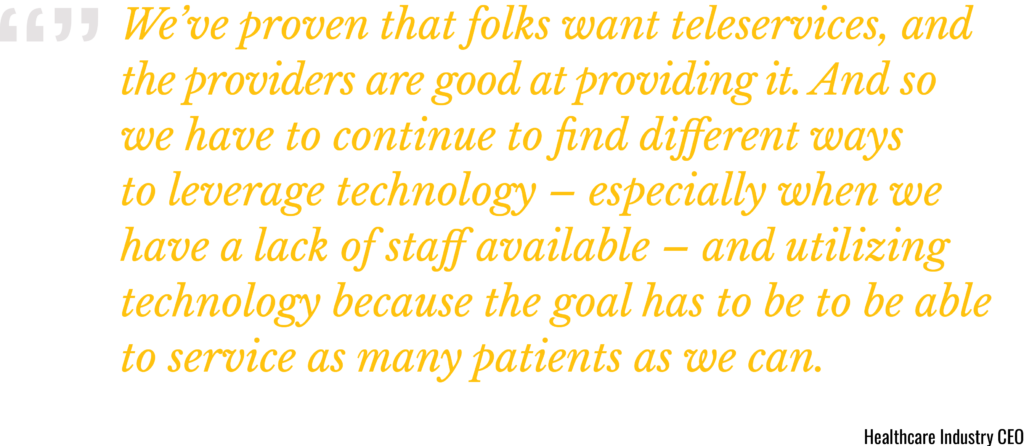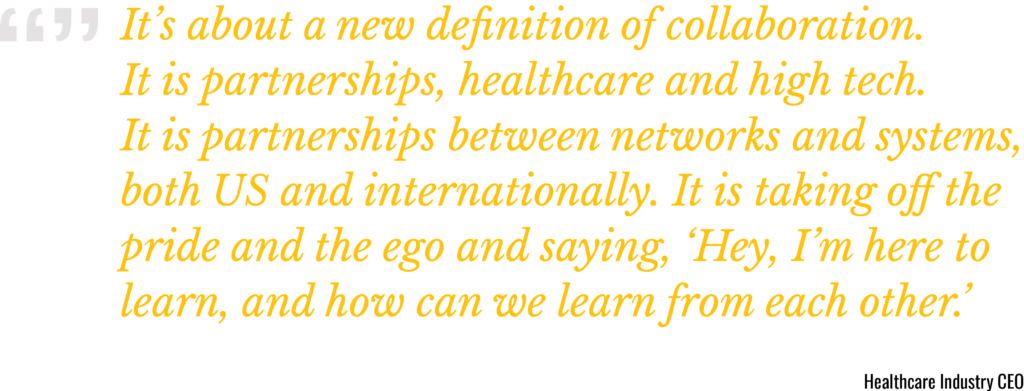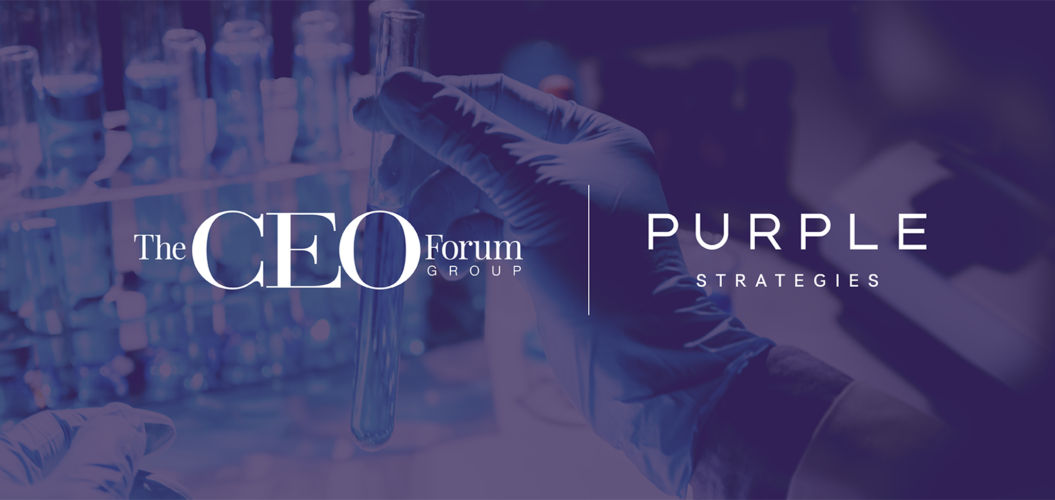Three ways the COVID-19 pandemic has brought a renaissance in healthcare
Purple Strategies is the thought leadership partner of The CEO Forum Group and Transformative CEO Summit series, featuring CEOs of leading companies discussing creative ways to solve today’s most pressing challenges. The Transformative CEO Healthcare Summit brought together CEOs in the healthcare industry to explore how technology is transforming healthcare and wellness, the healthcare supply chain, fighting human trafficking, and the future of care delivery.
Robert Reiss, founder and CEO of The CEO Forum Group, opened December’s Transformative CEO Summit with a hopeful possibility for our future: that our collective recovery from this devastating global pandemic will bring the emergence of a new renaissance in healthcare.

Just as Europe emerged from the devastation of the bubonic plague to embrace wide-ranging cultural, economic, and social changes, the world has responded to the pandemic in profound ways, including, notably, rapid transformations within our healthcare industry that are likely to leave a lasting positive impact for generations to come.
Summit participants discussed three ways the COVID-19 pandemic has ushered in a healthcare renaissance – one that puts us on a path to better health outcomes and greater efficiency.
(1) Accelerated healthcare innovation
The Renaissance era saw a rapid advancement of new technologies – from the invention of the printing press and telescope to the widespread adoption of eyeglasses – that put humanity on a new path forward. Similarly, today’s healthcare environment has seen disruptive new health technologies emerge and accelerate under the conditions created by the pandemic.
An obvious example is the COVID-19 vaccine, an unprecedented achievement not just for the creation of revolutionary new mRNA technology, but also for its rapid development and deployment to billions around the world. However, Summit participants pointed to potentially an even greater technological triumph – the development and adoption of artificial intelligence (AI) and machine learning (ML) in the healthcare space. Throughout the pandemic, healthcare organizations embraced these tools to identify inefficiencies in processes and resource allocation, forecast disease outbreaks, predict health risks, and more. The ability of AI and ML to harness data in new ways – by unlocking insights and making data more useful – has already had a big impact on preventative medicine that will only continue to grow.
(2) New norms for patient care

Telemedicine has been growing for some time, but social distancing and the restrictions on in-person visits during the pandemic hastened widespread adoption. The considerable benefits of telemedicine experienced during the pandemic – from helping reduce the burden on overwhelmed hospitals and other healthcare facilities, to allowing healthcare providers to triage patients more effectively to ensure those in need of in-person care are seen more quickly – have helped make the case that telemedicine is here to stay. This trend toward remote care delivery could define the future of healthcare, although Summit participants acknowledged short-term headwinds as government and insurance industry support have decreased as pandemic conditions have improved.
(3) Uncommon healthcare partnerships and widespread sharing of ideas

Summit participants agreed that the pandemic highlighted the importance of collaboration in the healthcare industry. The need for rapid solutions to the crisis led to a surge in research and development that required unprecedented cooperation between pharmaceutical companies, government, and academic institutions to develop vaccines and treatments. Participants also noted the value of sharing data and medical information across organizations and borders to make new learning accessible quickly and optimize delivery of care to patients. Moreover, partnerships between technology companies and healthcare organizations have enabled numerous developments in the healthcare space – from the development of telemedicine platforms for hospitals, to technology startups focused on rapid test kit development. Maintaining this extraordinary level of collaboration between healthcare organizations, technology companies, academia and government will continue to be critical.
Is this health renaissance already coming to an end, or is it just beginning?

Summit participants expressed a shared optimism that a revival in healthcare may be emerging, but we can’t be certain it will endure. Even the immense progress we made with telemedicine during the pandemic may regress as government restrictions are lifted and insurance companies drop coverage. While the COVID-19 pandemic was a powerful catalyst for rapid technological innovation, deep social and cultural shifts, and a renewed spirit of collaboration within the healthcare industry, leaders within the healthcare space must keep up the momentum in order to achieve long-lasting, meaningful impact for humanity and the future of our health.

 AI and Paradigm Shifts on the Minds of Healthcare CEOs
AI and Paradigm Shifts on the Minds of Healthcare CEOs  Purple Strategies Elevates Three To Partnership Group
Purple Strategies Elevates Three To Partnership Group